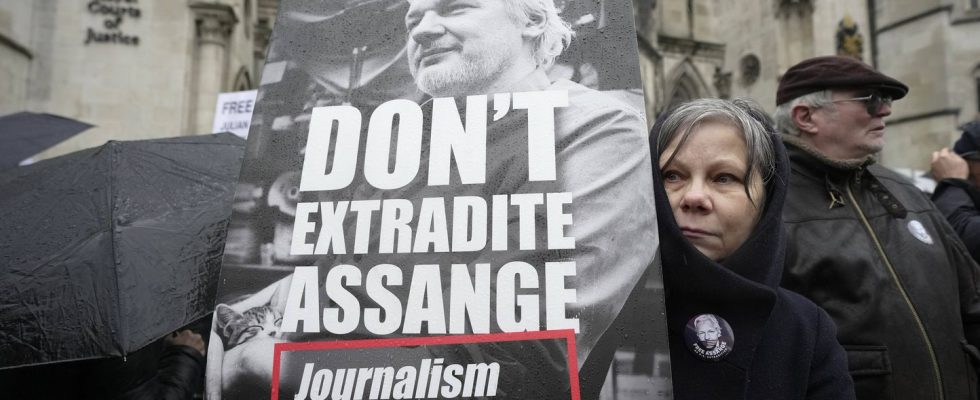Julian Assange will experience a crucial day for his future this Tuesday. British justice will in fact say whether it will grant the founder of WikiLeaks a last appeal against his extradition to the United States, where he risks 175 years in prison for leaks of confidential documents.
The time for conclusion is perhaps approaching in this long-term affair, erected as a symbol of the threats weighing on press freedom.
The ECHR as a last hope
Two judges of the High Court in London, Victoria Sharp and Jeremy Johnson, must decide whether or not to grant the 52-year-old Australian the right to appeal his extradition to the United States, accepted in June 2022 by the British government. Their decision will be made public from 10:30 a.m. (11:30 a.m. in Paris).
In the event of defeat, Julian Assange could only appeal to the European Court of Human Rights in the hope of having the extradition suspended, but the deadlines look very tight.
American justice is prosecuting Julian Assange for having published since 2010 more than 700,000 confidential documents on American military and diplomatic activities, particularly in Iraq and Afghanistan. Among them is a video showing civilians, including two Reuters journalists, killed by fire from an American combat helicopter in Iraq in July 2007.
Rape investigation dismissed
Julian Assange was arrested by British police in 2019 after seven years spent in the Ecuadorian embassy in London, in order to avoid extradition to Sweden in a rape investigation, dismissed the same year. Many voices around the world have also urged US President Joe Biden to drop the 18 charges against Julian Assange during Donald Trump’s first term, under a 1917 espionage law.
In recent weeks, those close to Julian Assange, detained for five years in the high security Belmarsh prison in London, have warned of the deterioration of his state of health. His defense also highlights a risk of suicide in the event of extradition. Suffering, he was absent from the February hearings, during which dozens of his supporters came to show their support.
In an attempt to reassure him about the treatment that would be inflicted on him, the United States affirmed that he would not be incarcerated at the very high security ADX prison in Florence, Colorado, nicknamed the “Alcatraz of the Rockies”, and that he would receive the necessary clinical and psychological care.

